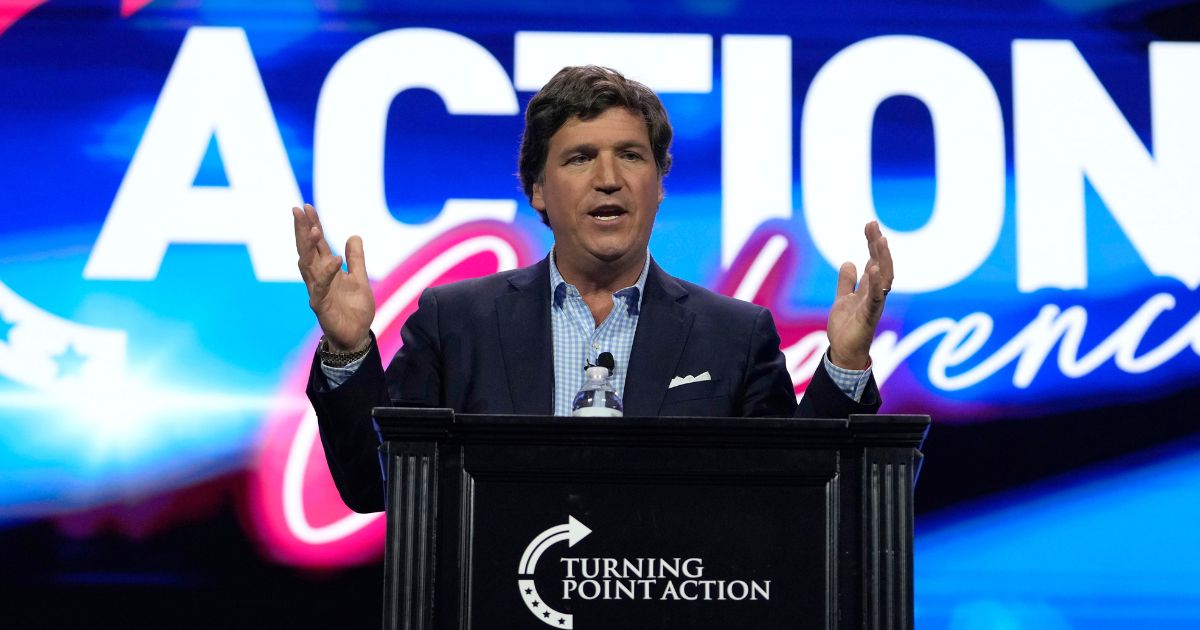
Title: Prominent Putin Ally Says Tucker Carlson ‘Signed His Own Death Warrant’ with Recent Russia Comments
Introduction
A recent statement by a prominent ally of Russian President Vladimir Putin has made headlines, suggesting that American television host Tucker Carlson may have put himself in danger with his recent comments regarding Russia. This surprising claim has sparked concerns over the delicate relationship between media figures and their impact on international relations. While it is important to acknowledge the potential risks involved, it is crucial to highlight the significance of free speech in ensuring an open and democratic society.
The Controversial Remarks
During his primetime show on Fox News, Tucker Carlson sparked controversy by downplaying concerns about Russian aggression towards Ukraine. He questioned the merits of supporting Ukraine and argued for a more conciliatory approach towards Russia. Carlson’s views immediately drew criticism from various quarters, both domestically and internationally.
The Response from a Prominent Putin Ally
Alexander Dugin, a well-known and influential Russian political scientist, philosopher, and author, voiced his disapproval of Carlson’s comments on a Russian talk show. Dugin accused Carlson of disregarding Russian interests by promoting what he perceived as a weak stance against Russia’s actions. Dugin, who is known for his conservative views and strong support for President Putin, stated that Carlson had “signed his own death warrant” by attacking Russia’s policies.
Analyzing Dugin’s Statement
It is important to note that Dugin’s statement must be taken within the context of his provocative discourse and adherence to an “us versus them” mindset. However, the suggestion that Carlson could face severe consequences for expressing his views resonates with the current geopolitical climate, where dissenting voices are often silenced through intimidation and violence.
The Role of Free Speech
In democratic societies, freedom of speech lies at the heart of open dialogue, critical thinking, and the exchange of ideas. However, it is crucial to remember that free speech should be accompanied by the responsibility to exercise it with care and respect for the potential consequences. Threats made against individuals who express differing opinions only serve to stifle debate and promote a climate of fear.
Protection of Journalists and Public Figures
The safety of journalists and public figures is a significant concern, particularly in regimes where dissenting voices face persecution. Governments across the globe should prioritize protecting the safety and well-being of individuals who exercise their right to freedom of expression, regardless of whether their views are agreeable or controversial.
The Importance of a Balanced Approach
While Carlson’s comments attracted criticism, it is essential to maintain a balanced approach when analyzing media personalities’ impact on international relations. There is a fine line between impartially presenting alternative perspectives and endorsing narratives that may undermine global diplomacy.
Conclusion
The statement by Alexander Dugin, a prominent ally of Russian President Putin, warning Tucker Carlson about the consequences of his recent comments on Russia, has sparked concerns about the potential dangers faced by individuals exercising their right to free speech. It highlights the need for governments worldwide to protect the safety of journalists and public figures and uphold the freedom of expression fundamental to a democratic society. The delicate balance between free speech and international relations emphasizes the importance of responsible journalism in promoting global understanding and maintaining peace.
